
Taiwan Steel Union (TSU) cooperates with government’s environmental policy to recycle and reuse Electric Arc Furnace (EAF) dust hazardous waste generated from EAF Steel mills not only to effective resolve local EAF dust disposal problems, but also to recover Zinc (Zn about 25%), Lead etc. valuable metals from EAF dust to produce Crude Zinc Oxide (Zn about 58%) product by using Waelz Kiln high temperature smelting technology. The Crude Zinc Oxide product will then be sold to Zinc smelters or chemical plants locally or abroad as raw materials to manufacture high purity zinc metal ingot product (99.995% Zn) or high purity Zinc Oxide product (98% ZnO), which will be imported by local galvanizing, tire, or rubber industries to make galvanized architectural construction materials or related consumer goods. Another essential “Zinc Metal Life Cycle Recirculation” is completed as part of scrape metal circular economic society in Taiwan.
Under the foundations of 22 years solid operational experience, TSU has obtained all operational permits in December 2021 for three (3) categories total 11 classes of resource industrial wastes which were hard to disposal in Taiwan, and to be included into daily operation in 2022. In addition to current EAF dust and heavy metals contaminated soil, TSU will also accept: Zinc containing industrial wastes and low purity products, Zinc containing sludge (including electroplating sludge and industrial process sludge), lime containing incinerator fly ash, carbon containing organic heating value waste and wood biomass waste for reuse and recycling and expanding into complete diversify business in 2022.
TSU Waelz Kiln process produce rotary kiln slag end product which is a stable and harmless general industrial waste and can be 100% recycled and reused. The Waelz slag is classified as No. 35 generally reusable rotary slag under “Industrial Waste Recycling and Reuse Management Act of Minister of Economic”. The Waelz slag is delivered to Taiwan Steel resource Co. Ltd., 100% owned subsidiary company of TSU, or licensed third-party recycling companies to be used as cement raw materials, cement based product concrete aggregates, asphalt concrete aggregates, asphalt concrete aggregates raw materials, non-structural concrete mix aggregates raw materials, or pavement foundation/bottom layer grade aggregates raw materials, achieving TSU’s “zero waste” business model goal.
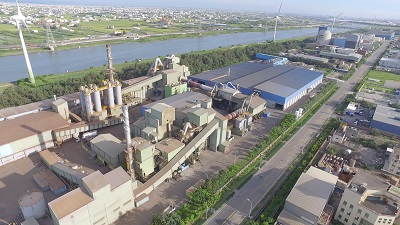

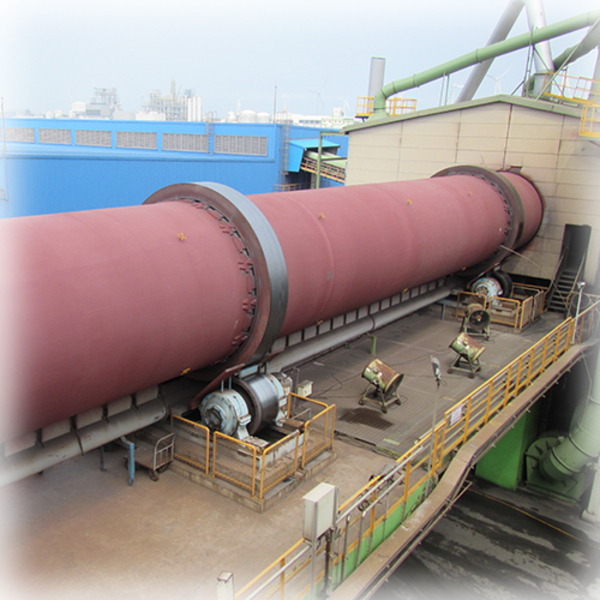
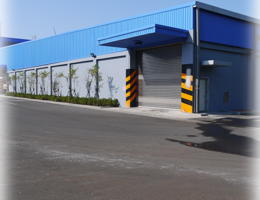
Taiwan Steel resource Co. Ltd. (TSR) is 100% owned subsidiary company of TSU. The main business of TSR is to stabilize and reuse the reducing slag generated from EAF steel mills, recycling and reuse the oxidizing slag from EAF steel mills as well as Waelz slag produced from parent company. TSR is the world first fully automated slag stabilization plant using 21 kgf/cm2 high pressure steam (215℃ saturated steam). The core technology of slag stabilization is to allow reducing slag be processed under high temperature autoclave for 3 to 6 hours to promote free-CaO or free-MgO and water undergo reactions into stable hydrated lime or hydrated magnesium products. Stabilized reducing slag volume will not expand further after contact with moisture. This technology will reduce stabilization time greatly as compared to piling outdoor undergoes 6 to 12 months natural stabilization process in many other Countries. Stable slag grading aggregates can be produced in very short period of time and increased consumption goal can be accelerated.
In addition to reducing slag stabilization process, TSR also equipped with two slag concrete mix plants, one for making CLSM concrete mix recycling product and the other one making non-structural concrete mix recycling product. From slag generation sources (steel mills, TSU, or illegal dumping sites) to construction end-users (construction sites or other concrete mix plants), TSR’s dedicated recycling material concrete mix plants and complete material flow tracking records allowing care-free using stabilized slag recycled aggregates with stable quality by all downstream end users. Consumption and quality tracking will be more effective controlled by the Authority in order to gain customer truth and achieving sustainable economic via resource recycling.
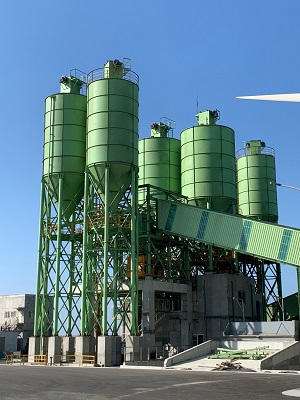

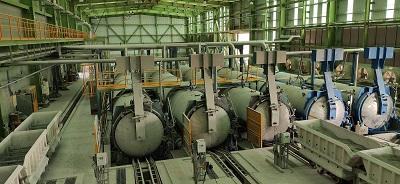
.jpg)
